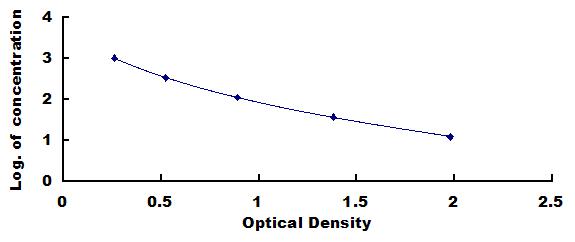Packages (Simulation)

Reagent Preparation

Image (I)
Image (II)
Certificate


ELISA Kit for Substance P (SP)
- Product No.CEA393Ge
- Organism SpeciesPan-species (General) Same name, Different species.
- Sample TypeSerum, plasma, tissue homogenates, cell lysates, cell culture supernates and other biological fluids
- Test MethodCompetitive Inhibition
- Assay Length2h
- Detection Range12.35-1,000pg/mL
- SensitivityThe minimum detectable dose of this kit is typically less than 4.63pg/mL.
- DownloadInstruction Manual
- UOM 48T96T 96T*5 96T*10 96T*100
- FOB
US$ 595
US$ 850
US$ 3825
US$ 7225
US$ 59500
For more details, please contact local distributors!
Specificity
This assay has high sensitivity and excellent specificity for detection of Substance P (SP).
No significant cross-reactivity or interference between Substance P (SP) and analogues was observed.
Recovery
Matrices listed below were spiked with certain level of recombinant Substance P (SP) and the recovery rates were calculated by comparing the measured value to the expected amount of Substance P (SP) in samples.
| Matrix | Recovery range (%) | Average(%) |
| serum(n=5) | 89-101 | 94 |
| EDTA plasma(n=5) | 87-96 | 90 |
| heparin plasma(n=5) | 83-101 | 91 |
Precision
Intra-assay Precision (Precision within an assay): 3 samples with low, middle and high level Substance P (SP) were tested 20 times on one plate, respectively.
Inter-assay Precision (Precision between assays): 3 samples with low, middle and high level Substance P (SP) were tested on 3 different plates, 8 replicates in each plate.
CV(%) = SD/meanX100
Intra-Assay: CV<10%
Inter-Assay: CV<12%
Linearity
The linearity of the kit was assayed by testing samples spiked with appropriate concentration of Substance P (SP) and their serial dilutions. The results were demonstrated by the percentage of calculated concentration to the expected.
| Sample | 1:2 | 1:4 | 1:8 | 1:16 |
| serum(n=5) | 79-95% | 96-104% | 85-94% | 78-102% |
| EDTA plasma(n=5) | 85-94% | 86-97% | 84-98% | 91-105% |
| heparin plasma(n=5) | 83-93% | 95-105% | 84-99% | 89-97% |
Stability
The stability of kit is determined by the loss rate of activity. The loss rate of this kit is less than 5% within the expiration date under appropriate storage condition.
To minimize extra influence on the performance, operation procedures and lab conditions, especially room temperature, air humidity, incubator temperature should be strictly controlled. It is also strongly suggested that the whole assay is performed by the same operator from the beginning to the end.
Reagents and materials provided
| Reagents | Quantity | Reagents | Quantity |
| Pre-coated, ready to use 96-well strip plate | 1 | Plate sealer for 96 wells | 4 |
| Standard | 2 | Standard Diluent | 1×20mL |
| Detection Reagent A | 1×120µL | Assay Diluent A | 1×12mL |
| Detection Reagent B | 1×120µL | Assay Diluent B | 1×12mL |
| TMB Substrate | 1×9mL | Stop Solution | 1×6mL |
| Wash Buffer (30 × concentrate) | 1×20mL | Instruction manual | 1 |
Assay procedure summary
1. Prepare all reagents, samples and standards;
2. Add 50µL standard or sample to each well.
And then add 50µL prepared Detection Reagent A immediately.
Shake and mix. Incubate 1 hour at 37°C;
3. Aspirate and wash 3 times;
4. Add 100µL prepared Detection Reagent B. Incubate 30 minutes at 37°C;
5. Aspirate and wash 5 times;
6. Add 90µL Substrate Solution. Incubate 10-20 minutes at 37°C;
7. Add 50µL Stop Solution. Read at 450 nm immediately.
GIVEAWAYS
INCREMENT SERVICES
| Magazine | Citations |
| Journal of Veterinary Internal Medicine | A Potential Role for Substance P and Interleukin-6 in the Cerebrospinal Fluid of Cavalier King Charles Spaniels with Neuropathic Pain Pubmed: 23659719 |
| Pharmacol Res | Oral curcumin has anti-arthritic efficacy through somatostatin generation PubMed: 25836921 |
| Applied Biological Chemistry | Positive enhancement of Lactobacillus fermentum HY01 on intestinal movements of mice having constipation 10.1007/s13765-017-0327-3 |
| CNS Neuroscience & Therapeutics | Direct activation of tachykinin receptors within baroreflex afferent pathway and neurocontrol of blood pressure regulation Pubmed:29900692 |
| Journal of Veterinary Science | Serum Levels of Neuropeptides in Cows with Left Abomasal Displacement Pubmed: 30562932 |
| Respiratory Physiology & Neurobiology | Effects of nanoparticles on Neuroinflammation in a Mouse Model of Asthma Pubmed: 31542455 |
| Chinese Medicine | Hejie Zhitong prescription promotes sleep and inhibits nociceptive transmission-associated neurotransmitter activity in a rodent migraine model Pubmed: 33014123 |
| Medical Research Journal | Changes of substance P, NGF and CGRP salivary levels among patients undergoing physical therapy |
| Int Urol Nephrol | Evaluation of the causes affecting the development of pruritus in patients with peritoneal dialysis 34213714 |
| J Chem Neuroanat | Surfactant protein C is associated with perineuronal nets and shows age-dependent changes of brain content and hippocampal deposits in wildtype and 3xTg mice 34626771 |
| Catalog No. | Related products for research use of Pan-species (General) Organism species | Applications (RESEARCH USE ONLY!) |
| CEA393Ge | ELISA Kit for Substance P (SP) | Enzyme-linked immunosorbent assay for Antigen Detection. |









